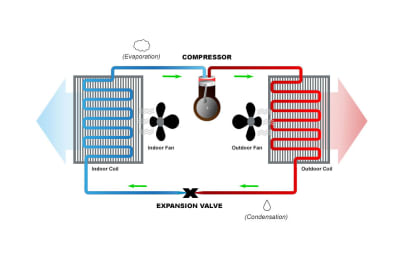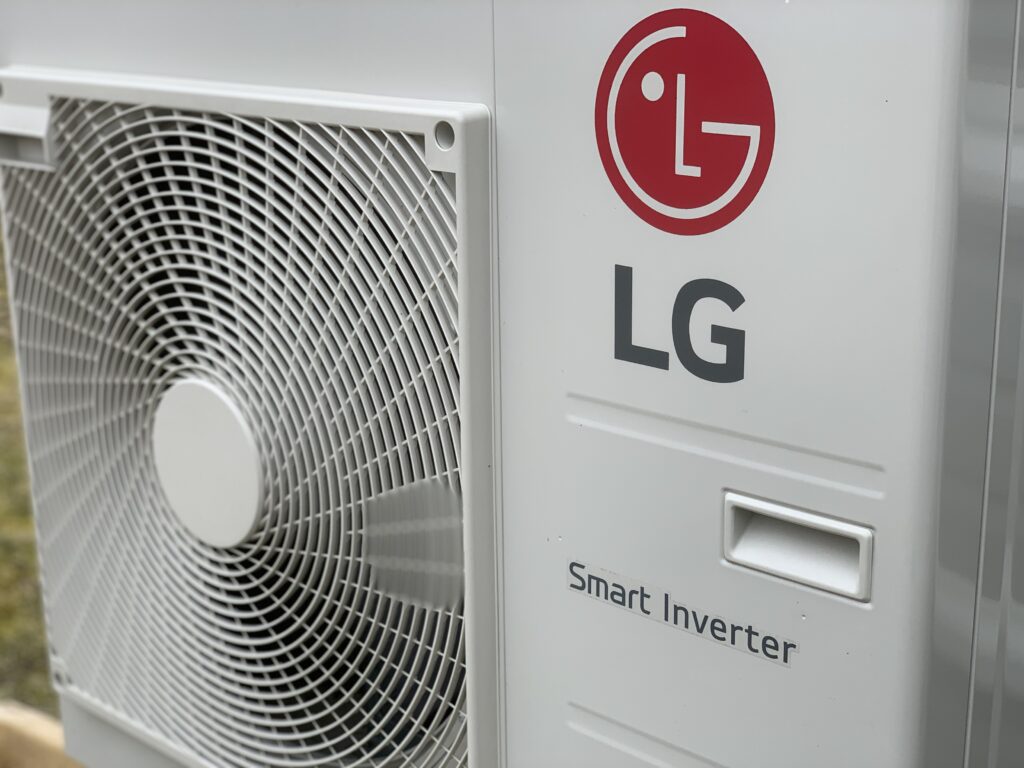As the world continues to prioritize energy efficiency and sustainability, more and more homeowners and business owners are looking for alternatives to traditional heating systems. One option that has gained significant attention in recent years is air source heat pumps, which offer a number of benefits, including significant energy savings over oil-fired boilers. In this blog post, we’ll explore the energy savings of using an air source heat pump instead of an oil-fired boiler, and why it may be a smart investment for your home or business.
First, let’s take a closer look at what an air source heat pump is and how it works. An air source heat pump is a heating and cooling system that uses a refrigerant cycle to extract heat from the outdoor air and transfer it into your home or business. The heat pump then circulates this warm air throughout the building, providing heat in the winter and cooling in the summer. In contrast, an oil-fired boiler uses oil as a fuel source to heat water, which is then circulated throughout the building to provide heat.
So, how do these two heating systems compare when it comes to energy efficiency and cost savings? Let’s take a closer look:
- Energy Efficiency
One of the most significant benefits of air source heat pumps is their energy efficiency. According to the Energy Saving Trust, an air source heat pump can be up to 300% efficient, meaning that for every unit of electricity used to power the system, it can produce up to three units of heat. In contrast, an oil-fired boiler is typically only around 90% efficient, meaning that a significant amount of energy is wasted during the combustion process.
- Cost Savings
When it comes to cost savings, air source heat pumps also have the advantage over oil-fired boilers. While the upfront cost of an air source heat pump may be higher than that of an oil-fired boiler, the long-term savings can be significant. According to the Energy Saving Trust, the average annual cost of running an air source heat pump in the UK is around £690, compared to £1,000 for an oil-fired boiler. This means that homeowners and business owners can potentially save hundreds of pounds each year on heating costs by switching to an air source heat pump.
- Carbon Footprint
Another benefit of air source heat pumps is their lower carbon footprint compared to oil-fired boilers. Because air source heat pumps use electricity to power the refrigerant cycle, they produce significantly fewer greenhouse gas emissions than oil-fired boilers, which rely on fossil fuels for heat. This makes air source heat pumps a more sustainable and environmentally friendly choice for heating and cooling.
- Renewable Energy
Air source heat pumps can also be powered by renewable energy sources, such as solar or wind power, further reducing their carbon footprint and dependence on fossil fuels. In contrast, oil-fired boilers are entirely reliant on oil, which is a finite resource and subject to price fluctuations based on global supply and demand.
- Maintenance and Lifespan
Air source heat pumps also require less maintenance and have a longer lifespan than oil-fired boilers. Because air source heat pumps have fewer mechanical parts than boilers, there are fewer opportunities for things to go wrong, meaning less maintenance is required. Additionally, air source heat pumps typically last around 20-25 years, compared to 15-20 years for oil-fired boilers, meaning that homeowners and business owners can enjoy their investment for longer.
In conclusion, if you’re looking to reduce your energy consumption, save money on heating costs, and reduce your carbon footprint, an air source heat pump is a smart choice. By providing significantly higher energy efficiency, lower operating costs, and a reduced carbon footprint, air source heat pumps offer a sustainable and efficient heating and cooling solution that can benefit both homeowners and business owners for years to come.





